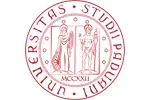We're moving! This site will be relocating to goingto.university in 2026. Please update your bookmarks to the new address.


| The award | How you will study | Study duration | Course start | Domestic course fees | International course fees |
|---|---|---|---|---|---|
| MSc | Full-time | 2 years | October | - | EUR 2739 per year |
The Master’s degree provides advanced knowledge in the field of agricultural systems as well as skills to develop and manage sustainable production systems located in warm-temperate environments at a global level. The programme explores sustainability of production in all its implications, including both innovative technologies and socio-economic aspects.
Programme structure
1st Year: Agrifood Economics and Policy; Sustainable Agriculture; Agricultural Management of Biogeochemical Cycles; Integrated Management of Arthropod Pests; Plant Breeding; Precision Farming; Soil Microbiology; Advanced Statistics
2nd Year: Sustainable Disease Management; Crop Physiology; Sustainable Livestock Systems; Sustainable Use of Pesticides; Sustainable Viticulture And Woody Crop Production; Water Resources Management
Study tracks:
It is also possible to apply to the double degree delivered in collaboration with the University of Georgia (USA). For further information, please check the University website
Career opportunities
Graduate work in management and consulting activities in agro-livestock systems; international marketing of agricultural products, livestock and industries; development of innovative technologies within companies operating in the agriculture and livestock area; control and monitoring of
productive, environmental and economic performances of agricultural farms; research and development of innovative technologies within private and public research institutions.
Apply now!
Our tuition fees will not exceed 3000 euros per year. Scholarship and fee waivers are available for international students, for more information visit our website: Scholarships | Università di Padova (unipd.it)
Bachelor diploma (or equivalent)
The entry qualification documents are accepted in the following languages: English / Italian.
You must take the original entry qualification documents with you when you finally go to the university.
English B2 Level (CEFR) or equivalent certificate
Please check out this link for the full list of accepted certificates, minimum scores and exemptions
Additional English language proficiency requirements for students applying to the double-degree programme:
Below are some suggested courses at other providers that you may also be interested in:
Acting - Foundation (Musical Theatre) Cert HE
The Liverpool Institute for Performing Arts (LIPA)
Find out moreTranslation, interpreting and digital communication Master Degree
IULM University of Milan
Find out moreDigital Fashion Certificate of Attendance
IIFM | Italian Institute of Fashion Management
Find out moreIf you do not meet the entry requirements for this course then consider one of these postgraduate preparation courses from another institution:
Graduate Diploma of Engineering (Industrial Automation)
Engineering Institute of Technology
Find out moreGraduate Diploma in Strategic Supply Chain Management
University of Technology Sydney (UTS)
Find out moreThere are 59 other courses listed from University of Padua. A selection of these are displayed below:
Join the StudyLink email list and never miss a chance to turn your study abroad dreams into reality!

Find out more about studying in Italy